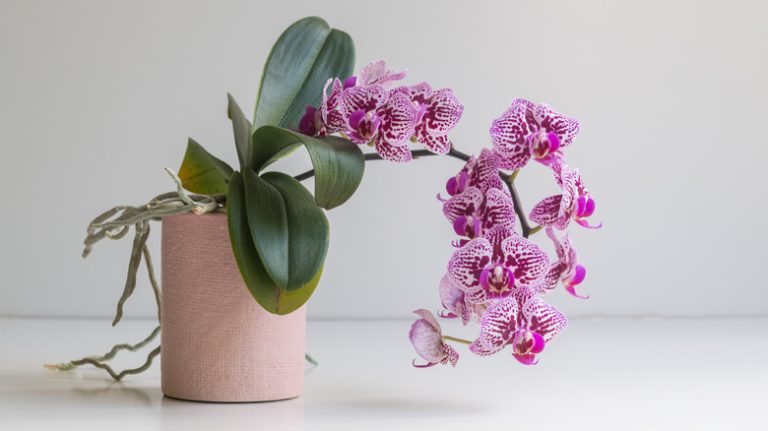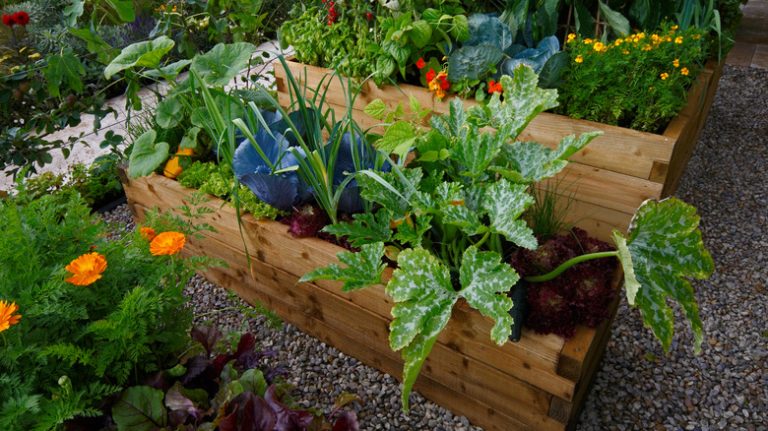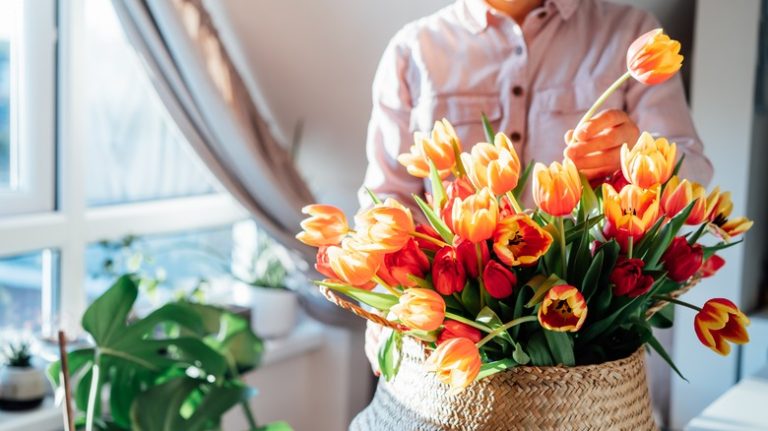If you’re looking to add some color to your garden, consider growing bachelor buttons (Centaurea cyanus). These wonderful flowers are easy to grow and will brighten up any sunny spot in your yard.
Bachelor buttons, also known as cornflowers, prefer warm and sunny locations. The best time to start planting them is in early spring, when the soil has warmed up. These plants can tolerate poor and dry soils, making them a great choice for gardens with less-than-ideal conditions.
You can start bachelor buttons from seed indoors, about 6-8 weeks before the last frost date. They can be a bit leggy if started indoors, so it’s best to directly sow them outdoors. Scatter the seeds on top of the soil and gently press them down. If you’re unsure about where to plant your bachelor’s buttons, there are many online resources that can provide information on selecting the right location for these beautiful flowers.
Bachelor buttons have a variety of uses. They can be harvested for bouquets, as their bright blooms make for stunning additions to floral arrangements. The flowers are also edible and can be used to garnish salads or decorate baked goods. If you want to harvest the flowers for their seeds, wait until they’ve fully bloomed and the seed heads have dried out.
When it comes to care, bachelor buttons are fairly low-maintenance. They don’t require much watering and can withstand drought conditions. However, they may benefit from a light watering during extended dry periods. To keep your plants blooming throughout the season, deadhead any spent flowers.
In conclusion, growing bachelor buttons can be a rewarding experience. These beautiful flowers are easy to grow and provide a sense of beauty to any garden. Whether you’re a novice or an experienced gardener, bachelor buttons are a great addition to any landscape. So grab your seeds and get planting!
“Bachelor buttons bring a sense of nostalgia to many gardens, and their vibrant colors and easy care make them a favorite of gardeners everywhere.” – Gardening Tips, by Sarah Szerlag
Blue Boy Bachelor’s Button Seeds
Blue Boy Bachelor’s Button seeds are a must-have for any floral enthusiast. With their stunning floral-blue color, these drought-tolerant plants will stand out above anything else in your garden. Most commonly known as Bachelor’s Buttons, Centaurea cyanus is a variety of flowering plant that grows well in warm climates.
Sowing Blue Boy Bachelor’s Button seeds is easy. Start by selecting a location in your garden that receives full sun. These plants can tolerate a wide range of soils, so planting them is quite straightforward. To get a head start on the blooming season, you may want to consider starting the seeds indoors about 3-4 weeks before your average last frost date.
If you prefer to sow the seeds directly into your garden, keep in mind that Bachelor’s Buttons tend to be a bit leggy. To prevent this, you can start the seeds in individual containers and transplant them once they have established their roots. The plants tend to self-sow as well, so you may find new seedlings in your garden the following year.
Bachelor’s Buttons have many uses. Besides being a beautiful addition to gardens and bouquets, the blue blooms are also edible. You can add them to salads or use them as garnishes. If you want to keep the flowers in a vase, simply cut the stems when the blooms are just starting to open. Change the water regularly, and your flowers will last longer.
Blue Boy Bachelor’s Button seeds can be found in many gardening supplies stores. If you are unsure about the winter-sowing method or need more info, there is a wide array of information available online. Different varieties of Centaurea cyanus, such as the white-flowered variety or the double-flowered variety, can also be grown, giving you even more options for your garden.
In conclusion, growing Blue Boy Bachelor’s Button seeds is a rewarding experience. With minimal care and attention, these plants will thrive in your garden, adding a vibrant touch to your outdoor space. So why wait? Get your Blue Boy Bachelor’s Button seeds and get started on growing these beautiful flowers today!
Source: Szerlag, Mason. “Growing Blue Boy Bachelor’s Button Seeds: Tips and Care”.
Variety Info
When it comes to growing Bachelor Buttons (Centaurea cyanus), there are many variety options to choose from. These beautiful annual flowers, also known as Cornflowers, come in a wide range of colors including blue, white, pink, and purple. Some varieties even feature double blooms, creating a stunning display in any garden.
If you’re interested in growing Bachelor Buttons, here is some variety information to help you get started:
- Most commonly, Bachelor Buttons are found in their classic blue color. This variety, also known as Cornflower Blue, is a favorite among gardeners.
- White Bachelor Buttons are a popular choice for those who want a more neutral color in their gardens. They add a touch of elegance and can be easily paired with other flowers or foliage.
- In addition to blue and white, Bachelor Buttons can also be found in shades of pink, purple, and even mixed colors. This variety selection allows you to create a vibrant and diverse display in your garden.
- Double-flowered Bachelor Buttons are a unique and eye-catching variety. These flowers have extra petals, giving them a fuller appearance.
Bachelor Buttons are relatively easy to grow and can be started from seeds. They are frost tolerant and can be sown directly into the ground or started indoors for earlier blooms. If you choose to start them indoors, be sure to select a well-drained soil and provide ample sunlight.
When it comes to sowing Bachelor Buttons, spacing them 2 inches apart is recommended to allow for proper growth. They can be sown in early spring or late fall, depending on your location and climate.
One of the best things about growing Bachelor Buttons is that they are both beautiful and functional. The flowers are not only a floral delight, but they can also be harvested for use in bouquets or even as an edible decoration for cakes and other dishes.
If you’re looking to add a touch of color and charm to your garden, Bachelor Buttons are a wonderful choice. Whether you’re a beginner or an experienced gardener, these plants are sure to bring joy and beauty to your outdoor space.
So, now that you have all the variety info about Bachelor Buttons, why not give them a try? Happy planting!
Sowing Info
When it comes to sowing Bachelor Buttons (Centaurea cyanus), there is some important information you need to know. Here are some key points to keep in mind:
|
1. Starting Seeds: Sow the seeds indoors or directly in the garden after the danger of frost has passed. If starting indoors, sow the seeds 4-6 weeks before the last expected frost date. 2. Selecting a Location: Bachelor Buttons grow best in well-drained soils and in full sun. Choose a location with good air circulation for optimal growth. 3. Planting Seeds: Plant the seeds about 1/4 inch deep and 6-12 inches apart. They can be planted in rows or scattered randomly in a bed. 4. Care: Keep the soil moist but not waterlogged. Bachelor Buttons don’t require much care, but removing weeds and dead flowers will keep the plants looking their best. 5. Harvesting: The flowers of Bachelor Buttons can be harvested when they are fully opened. Cut the stems just above the foliage and place them in a vase with water to enjoy their beauty indoors. |
|
So, whether you’re a beginner or an experienced gardener, following these sowing tips will help you grow beautiful Bachelor Buttons in your garden. Enjoy the wonderful blooms and make lovely bouquets!
Growing Info
When it comes to growing Bachelor Buttons (Centaurea cyanus), there are a few key pieces of information to keep in mind. Here are some tips and guidelines to help you successfully grow these wonderful blue flowers:
| 1. | Start by selecting a suitable location for sowing the seeds. Bachelor Buttons prefer full sun, although they can tolerate some light shade. Choose a spot in your garden that receives at least 6-8 hours of direct sunlight each day. |
| 2. | Sow the seeds directly in the garden after the danger of frost has passed. Bachelor Buttons can also be started indoors and transplanted once the seedlings are well-established, but they can be a bit temperamental when it comes to transplanting. |
| 3. | If you’re starting the seeds indoors, it’s best to do so about 4-6 weeks before the last frost date. This will give the plants enough time to establish themselves before they are moved outside. |
| 4. | Bachelor Buttons grow best in well-draining soils. They don’t like overly wet conditions, so make sure the soil has good drainage. If your garden has heavy clay soil, consider amending it with organic matter to improve drainage. |
| 5. | One interesting method for starting Bachelor Buttons is to winter-sow the seeds. This involves sowing the seeds in small containers in late winter, then placing the containers outside where they will receive the natural temperature fluctuations that trigger germination. |
| 6. | When it comes to watering, Bachelor Buttons are fairly drought-tolerant once established. Water them regularly during the germination phase and while they are getting established, but once they are growing well, they can often do well with minimal additional watering. |
| 7. | Bachelor Buttons can be harvested for their flowers when they are in full bloom. They make wonderful additions to bouquets and flower arrangements. |
| 8. | Although Bachelor Buttons are primarily grown for their flowers, it’s worth noting that the flowers are edible. They can be used to add color and a mild flavor to salads and other dishes. |
| 9. | If you want to save seeds for next year, just let the flowers fade and go to seed. The seed heads will turn brown and dry out, and you can then collect the seeds for planting in the future. |
| 10. | Bachelor Buttons are relatively low-maintenance plants. They don’t require much fertilization, and they are generally pest and disease resistant. However, keep an eye out for aphids and other common garden pests, and take appropriate measures if necessary. |
By following these growing tips and info, you’ll be able to enjoy the beautiful blooms of Bachelor Buttons in your garden. Whether you’re growing them for their ornamental value or for their edible flowers, they’re sure to bring charm and interest to your outdoor space.




